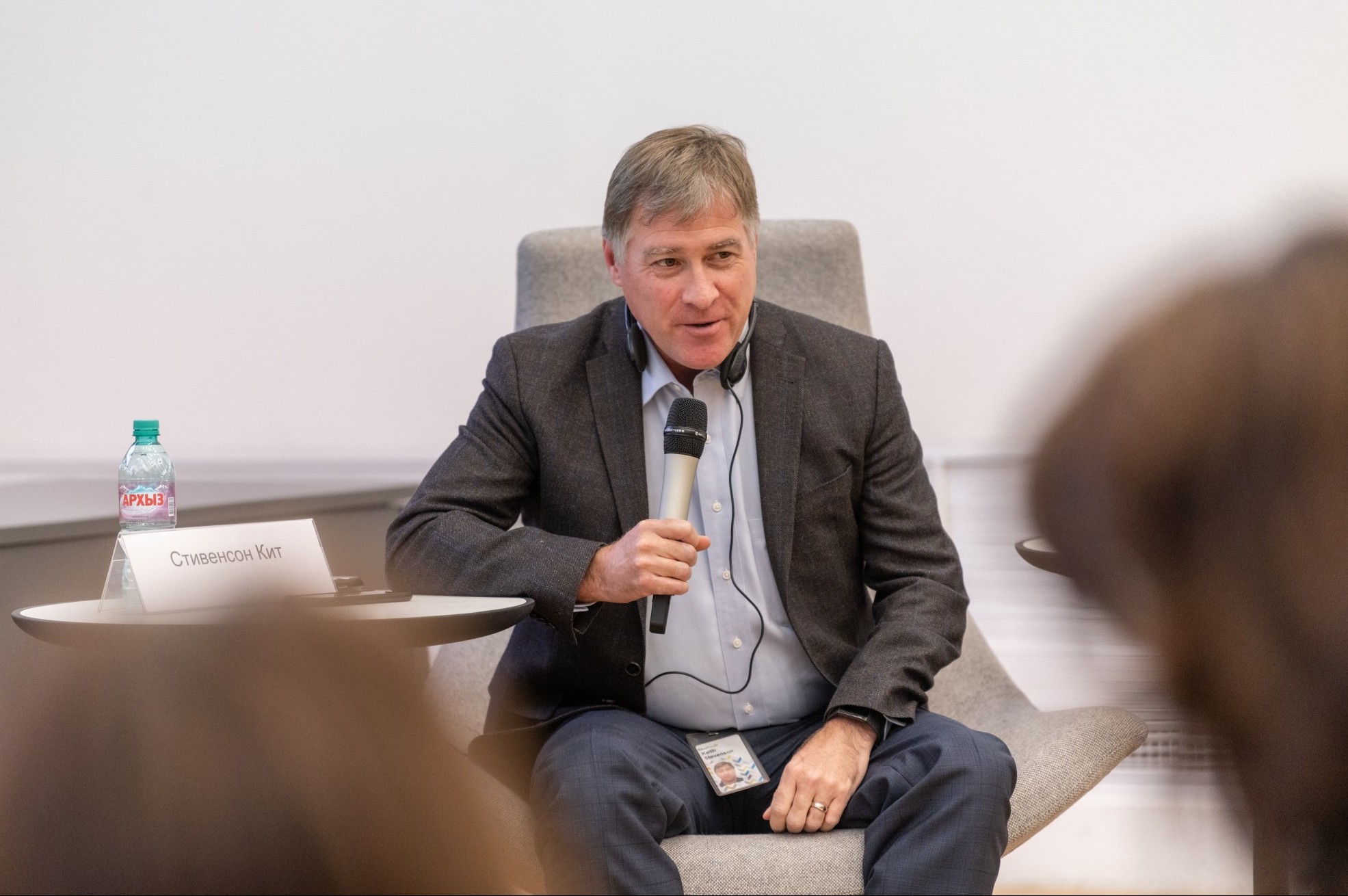Keith Stevenson – Provost, Full Professor, Dean of Research at Skoltech – gave his views on the challenges facing traditional universities versus what young universities are trying to do to meet the needs of “Digital Natives” (persons born during the information and technological revolution of the last two decades). This was in the framework of the panel session, “Engagement and Mindfulness of Students as the Key to Success,” which took place at Skoltech on Thursday 16 January 2020.
The talk covered the challenges facing education systems, especially concerning young persons’ decision-making in selecting a career path, and the question of whether or not the traditional education system is suitable for a new generation of students that has been surrounded by technology since before they could walk and talk.
Among other participates of the discussion were Ben Nelson (Founder and General Director of Minerva), Asylbek Kozhakhmetov (President of Almaty Management University), Vasiliy Tretyakov (General Director of University 2035), and Robert Urazov (General Director of Soyuz “Young Professionals”). Konstantin Ziskin (PhD pedagogical sciences, Head of the Department of Strategic Development of Education at MSU) moderated the session.
“I started a program at the University of Texas and I put freshmen into the research lab,” said Professor Stevenson. “I designed a course equivalent to general chemistry and I had them measure something experimentally that had never been measured before. They immediately asked how they would be graded or whether they had found the correct answer. I told them that we don’t know the answer; the answer is whether you can propose more experiments that will validate whether this is the correct answer or not. This changed the mindset of the students in the course. Digital natives are highly collaborative and connected through social media. They all discuss things, even though they may be from different backgrounds. The education system needs to reflect this.”
Professor Stevenson outlined that there is a trend in the different levels of university. For example, “University 1.0” is a traditional university such as Moscow State University or the University of Texas, both of which have centralized administrations that represent the core that funds all the other departments and programs.
“Nowadays, many universities are trying to modernize and are becoming more distributed and diversified. This is the so-called “University 2.0.” They don’t have departments but interdisciplinary programs that support people across the network, indeed, across the world; so, they might have many partnership universities to fund a certain program. They now realize that this reflects the mindset on how educational institutions need to modernize. This is because the next generation of students – digital natives – are fundamentally working and learning differently than any generation before them, because they were born with technology in their lap and are globally connected. If you look at these types of students, they want to be engaged immediately even though they might not have the necessary skills to do so.”
The provost highlighted Skoltech as a means to change this model towards integrating the curriculum with modern research directions with use-inspired outcomes (meeting industry needs). In this way, universities can diversify and move away from traditional fields of study and programs in order to give the next generation of students the tools and skills to compete in a digital world.
“A problem with educational reform is that it is difficult to bring something new to an institutionalized university such as the University of Texas or Moscow State University,” said Professor Stevenson. “Young universities are throwing this out the window and are building from scratch a different system based on what they know about this new generation of students. The next generation of students wants to know how to identify what problems to solve. Self-assessment is one way to understand what they are interested in, what problems they want to solve, and how they can contribute. In the current system, getting top marks in exams is not really a way to teach people how to think. Mindfulness is about experiential learning, and students can learn a great deal taking part in projects.”
Skoltech is a 2.0 university, as it breaks away from tradition and is striving to meet the needs of the digital native generation. By giving students the opportunity to adopt a hands-on approach in their studies and to gain work experience through internships, it is equipping them with the necessary skills for a fast-changing and competitive world.
Contact information:
Skoltech Communications
+7 (495) 280 14 81

